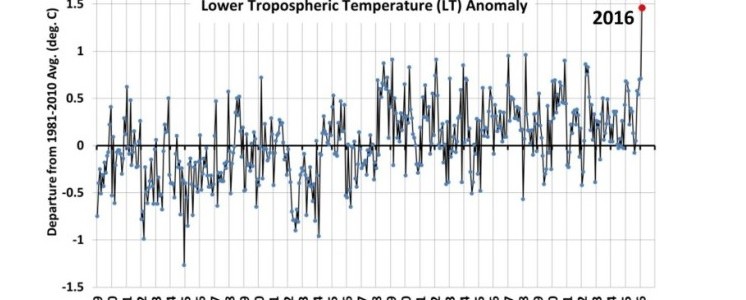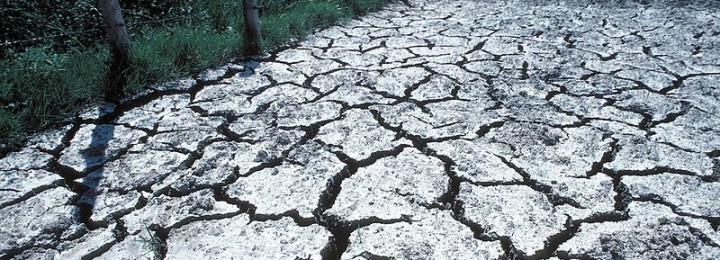Climate and Ag in the news
-

The Accumulated Winter Season Severity Index (AWSSI for short) is a new index that was created to objectively determine how extreme the winter season has been. It is not linked to a specific climatological or astronomical season but is defined to start and end when a specific set of conditions has been reached, and then…
-

In what some climatologists thought was a shocking result, the latest global temperature measured by satellite set a new all-time record in February 2016, far surpassing the old record set just last month. This is according to Dr. Roy Spencer of the University of Alabama at Huntsville, whose satellite records of global temperature have lagged…
-

The Star reported this week that increases in extreme weather and climate conditions often attributed to changing climate have increased stress on farmers. Farmers can see their entire crop wiped out by one extreme event, and an increase in these extreme events makes financial ruin more likely. The article describes some of the impacts recent…
-

For meteorologists and climatologists, March 1 marks the first day of spring. Spring is the season when severe weather really ramps up in many parts of the country, although in the Southeast we can and do get severe weather any time of year. In recognition of this, the National Weather Service has provided us with…
-

The Southeast Farm Press reported earlier this month that the 2015 tobacco crop was a near disaster to producers. Fewer plants than usual were planted and the market was down, but the real culprit was bad weather in many of the tobacco-growing areas of Kentucky and North Carolina. Wet conditions followed by drought and a…
-

The Packer reported this week that supplies of strawberries from California and Florida should be good going into Easter this year (link). In a separate article they also reported that although Florida’s supplies of early blueberries were limited due to poor winter weather, supplies of later blueberries, including those from Georgia, should be good (link).
-

This year is leap year, which means you will probably be reading this on February 29. This date comes around every four years in general, although we did not have one in 2000. The need for a leap year is due to the timing of the earth’s orbit around the sun. Here are some resources…